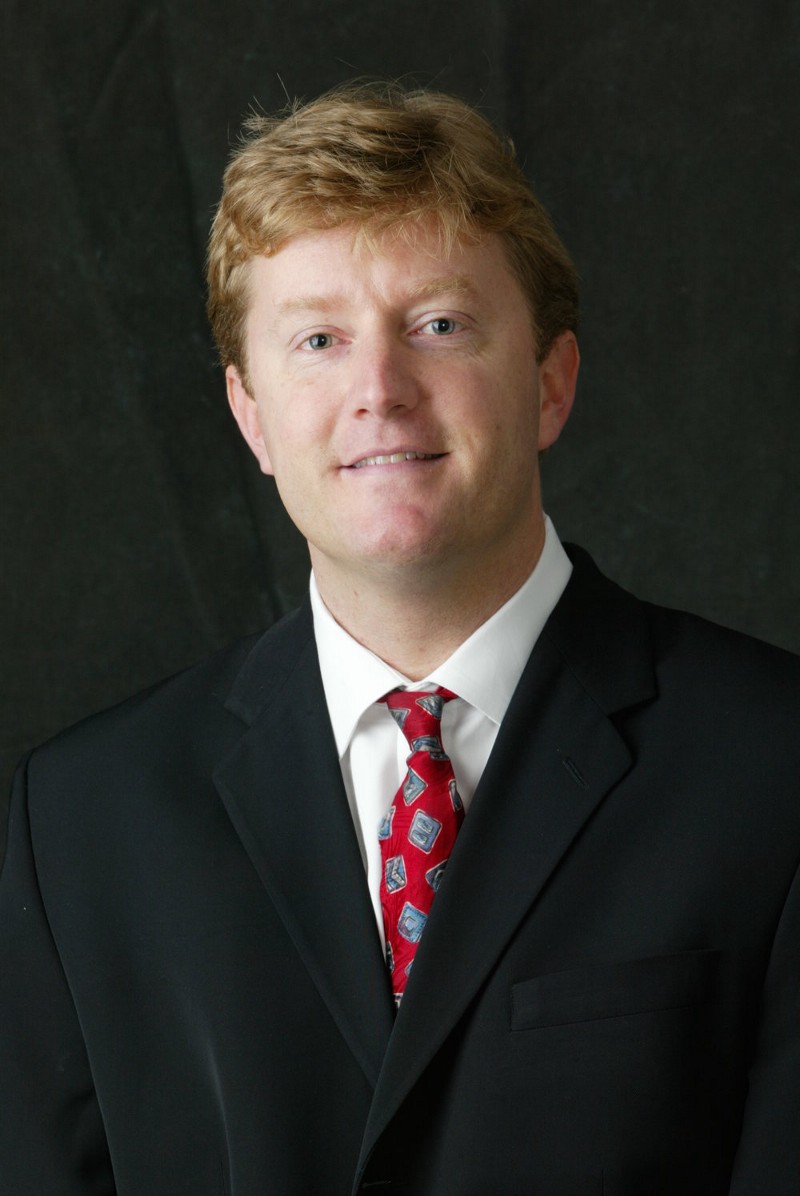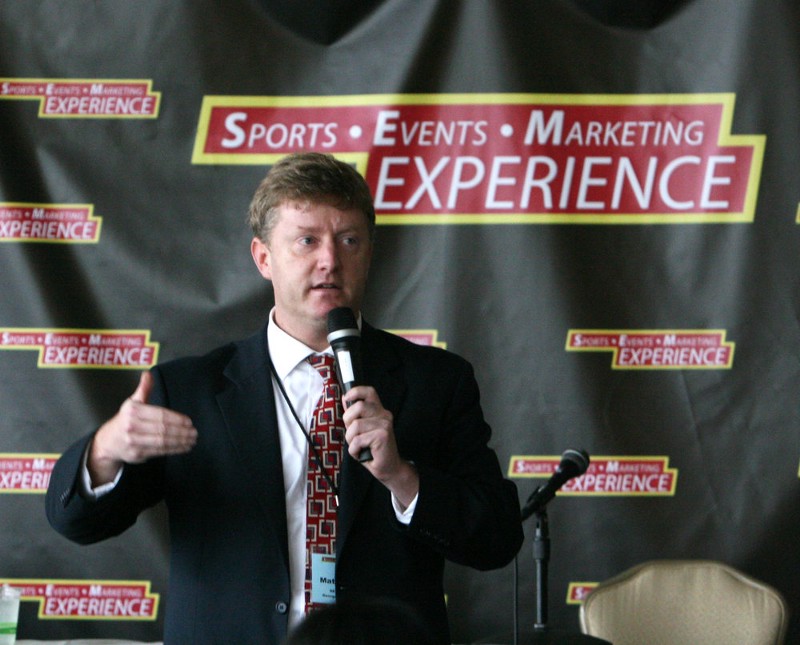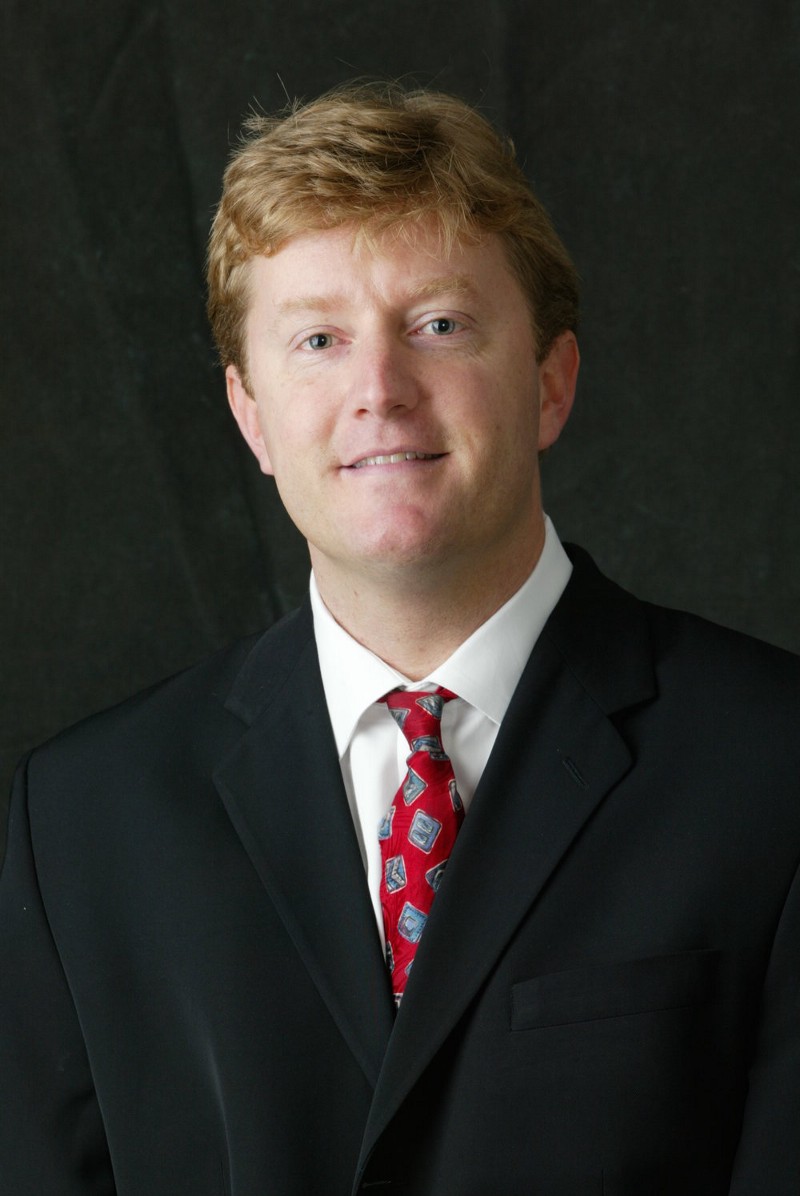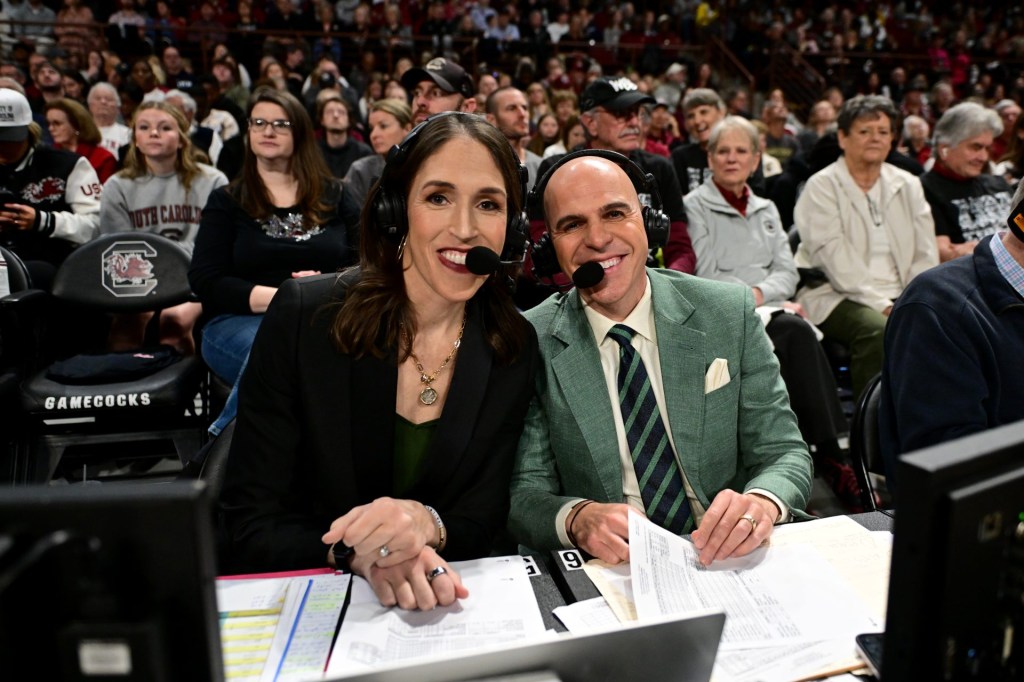This feature is presented to you by the University of Nebraska — Lincoln Master of Arts in Business with a Specialization in Intercollegiate Athletics Administration.

For more than 20 years, Matt Winkler, Director of the Sports Analytics and Management Graduate Program at American University and Founder and Executive Director of the Sports Event Marketing Experience (SEME) Conference, has built a wealth of experience in the NCAA, NHL, WNBA, MLS, Olympics, World Cup and beyond.
His expertise has given him the opportunity to implement innovative strategies within the industry on five different continents in the form of sports, events, careers, and education.
Located in Washington D.C., Winkler’s extraordinary global impact on sports business and higher education doesn’t go unnoticed.
His latest endeavor, the Sports Analytics and Management Program, launched this past fall.
An exclusively online program, the new master’s degree features sports strategy, analytics, technology, and enterprise management.
“With all of the experiences and changes in the industry, myself and others got to see everything and get a neat perspective on the business,” said Winkler. “We noticed this third wave of the industry and figured out that strategy, analytics, technology, enterprises and innovation are becoming huge aspects. There’s a need for people that can’t simply move to a major market to pursue this kind of field that’s becoming a major interest, so we created this space and implemented it online so anybody, anywhere can have access to it.”
Want more great content like this? Be sure to subscribe to our newsletter!
The journey for Winkler began at Curry College in Bethesda, MD, where he received a B.A. in Communication.
As a lifelong learner, he has found ways to go back to school resulting in an M.A. in Communication from American University and an Accreditation in Public Relations (APR) from the Universal Accreditation Board.
While his education has continued to grow over the years, his foundation began during his time at Curry College. There, he played soccer and set the school’s men’s scoring record, all while working and interning in various roles.
“Freshman year, I worked with the campus radio station. Sophomore year, I worked with campus TV. Junior year, I became a sports editor for the campus newspaper and senior year, I interned with the sports information office on campus,” said Winkler. “I was a jack of all trades, but a master of none. I didn’t necessarily start out saying where I exactly wanted to work, but this was the old school route one had to take before the internet took off.”
After building his resume through internships, the hunt for full-time work began.
Winkler’s hard work and connections helped him land a sports information position as his first big break.
“I built my portfolio like crazy, applied for multiple jobs, and reached out to as many people who were willing to make calls for me as I could.”
Luckily for Winkler, those calls led him to Bethlehem, PA, where he was brought on as the Assistant Sports Information Director at Lehigh University.
After holding the position at Lehigh for just over a year, the opportunity to pursue higher education and continue working in sports information presented itself in Washington, D.C.
“I got a really big break in 1992 by getting the opportunity to take the Master’s Program at American University and be their Assistant Athletics Director,” added Winkler. “A few years later, when I was 25, my boss had left for another school and I became the Sports Information Director.”
Thrust into the new position, at 25, Winkler became the youngest SID in the country.
As he continued to grow and be a role model in the field, the chance to give back and share the knowledge he developed in the form of a class presented itself.
“One day the Dean of Communications stopped me in the hallway and asked me to invent a class on what I do. I gave a call to some of my contacts, did a lot of research, and turned it all into a class called Sports Communication, one of the first of its type at the time.”
As he continued to make his mark, different organizations wanted in on his expertise.
“Further down my career path, Octagon, a Sports and Entertainment Agency, asked me to create a university program called Octagon University. I put together a 40-page business plan with three components: a career conference, an ultimate sports master’s program and a transition program for athletes.“
This proposal turned into a reality, as it resulted in the creation of his SEME conference and the Sports Information Management (SIM) Graduate Program at Georgetown University, where he was the Founding Associate Dean.
Winkler’s innovative mindset and high-profile experiences were applied to the SIM program at Georgetown, which has become one of the top ranked programs in the world.
“I came up with a next generation/third wave concept on sports entrepreneurship. It was a dream,” said Winkler. “I was able to bring classes to different continents and fulfill an international focus within the program. We traveled to China, Qatar, South Africa, Brazil, and England and throughout the USA. In October of 2013, we launched our first Global Immersion Program in Brazil.”
To this day, the SIM program continues to make international footprints with an executive certificate program known as The Global Business of Sports, which is hosted in Brazil.
“It’s hard to realize how hard it is to get to places with everything being one click away. In the real world, it’s more than a click or swipe. The world is so much closer now, but you still have to make IT happen. If you can do that, people will find you and help you, and in turn you can give back by being a mentor.”
— Matt Winkler
To go along with that, the program has an institutional partnership with The Josoor Institute, which is designed to provide educational and training facilities to the people of Qatar, the Middle East, and North Africa.
While hard work and an abundance of experience were clearly some of the driving factors in Winkler’s career, the meaningful connections he built helped make everything possible.
“I couldn’t have done any of this without other people,” added Winkler. “There’s a great network of human resources around me that I’m fortunate to be connected with. The experience I built on the side and people I got myself connected with made everything fall into place.”
Experience and networking are crucial for the development of any career, but Winkler also credits the evolution of sports and technology for playing a large role in his advancement.
“I was in the middle of all the explosion of technology and communication in the field. All of the experiences fell into a progression that helped me create a new style of concepts and turn them into educational programs.”

As for Winkler’s conference, SEME — Sports Events Marketing Experience, he developed it with the help of several executives.
“There wasn’t really a career conference where college students and young professionals could break into the industry. I got together with a connection of mine and we worked together to get about 10 key people that could reach out to others and it took off from there. Fortunately, the industry has expanded so much that there’s a need for a conference like this.”
SEME is an annual event where featured experts from more than 200 global organizations in 20 different sports career fields come together to form a premier national sports career and networking conference.
It has been a sellout for seven consecutive years.
“People from all over, who understand the value of giving back, join us and make time to offer expertise, which are important assets for sports executives. Those individuals help you get access to answers and be near high level people in the industry.”
With all of the substantial work Winkler has done in the field, his inquisitive mindset and connections are what motivated him to constantly take his work to the next level.
“You have to be inquisitive and constantly furthering your interests. That’s always been a part of me. I try to be well-read and look at different aspects of the field and see how they connect. The ability to connect those dots is my motivation, along with finding and staying connected with mentors that helped validate my interests. I use that in my programs because things like that weren’t available when I was in my twenties.”
Another great way to progress and build a network is to use the growth in technology to your advantage. Winkler noted that this expansion is game-changing, but that the old school process works as well.
“Nowadays, you have technology that is rapidly progressing. People are coming up with content enterprises and are building war chests of knowledge. We’re all one click away, so the ability to show your work is easier, but also very complicated and competitive. The old school foundations still should apply, but now you can build a presence on the web as well.”
Looking back at all of his accomplishments and thinking about the future, Winkler’s biggest reward is having the ability to add value and be a mentor in the field.
“The great thing about sports is its impact on community,” said Winkler. “It’s been a dream to be a pillar in the sports industry here in D.C. I’m extremely fortunate to have been able to broaden my sphere of influence by traveling and creating programs that can help globally. Being able to travel and see other cultures helped me gain perspective on what’s important and made me want to add value.”

















